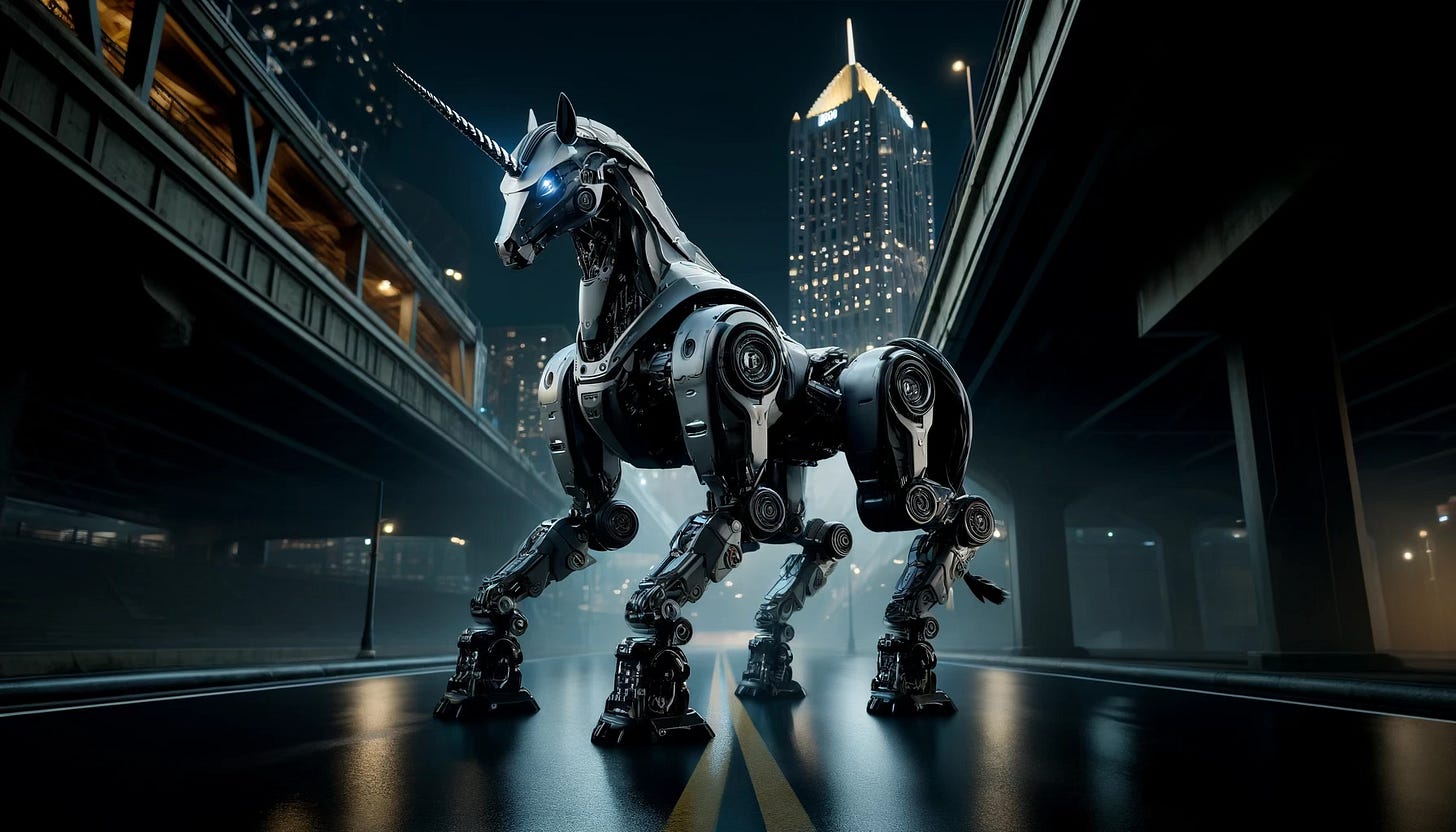Skild AI: Pittsburgh's Stealth Robotics Unicorn
(WITH UPDATES)
Skild AI, founded by Carnegie Mellon University professors Abhinav Gupta and Deepak Pathak, is emerging as a rising powerhouse in the race to integrate artificial intelligence into robotics on a global scale. According to The Information, the year-old startup is reportedly raising a substantial round that would inject $298 million and value the company at $1.5 billion.
Abhinav Gupta, an Associate Professor at the Robotics Institute, has a distinguished career marked by deep research into computer vision and machine learning. His collaborations with notable figures like Alyosha Efros and Martial Hebert have significantly advanced the understanding and application of visual data in robotics. Gupta's work prior to Skild AI involved enhancing the machine understanding of visual data, a foundational aspect of AI in robotics.
Deepak Pathak has become a leading figure in AI, earning a 2022 Okawa Research for his work on improving how robots function in the wild. His academic journey is highlighted by a Gold Medal in Computer Science & Engineering from the Indian Institute of Technology Kanpur and a Ph.D. from the University of California, Berkeley, under the guidance of Alyosha Efros and Trevor Darrell. Much of Pathak's research has focused on making robots adaptable to real-world environments. His work with legged robots has enabled them to maneuver across nearly any terrain, climb high stairs, and clamber over obstacles. He has also demonstrated novel ways to teach robots tasks, including having mobile manipulators learn from watching humans or even YouTube videos. Pathak has stated that his “ultimate goal is to build embodied machines with a human-like ability to generalize in real and diverse environments."
Building on their shared backgrounds in groundbreaking AI and robotics research, Gupta and Pathak founded Skild AI in 2023 with a vision to develop an AI-driven 'brain' for robots. The company focuses on creating versatile software capable of operating robots with varying locomotive capabilities. Skild AI's software can operate robots with varying numbers of legs, from two to four, indicating a broad application spectrum from industrial to possibly even consumer-level robotics. The goal is to achieve a level of functionality in robots that mirrors human-like generalization abilities, enabling them to perform complex tasks more autonomously and effectively.
Although specific details about Skild's offerings are scarce, the company focuses on creating adaptive software that enhances robots' ability to learn from environmental interactions and real-time adaptations. Skild is reportedly developing an advanced AI system designed to act as a "brain" for robots, enabling them to perform complex tasks autonomously. Their new system is being created to work with both bipedal and quadrupedal robot configurations, with potential applications in industrial automation, logistics, healthcare, and domestic assistance. Skild's development team already includes veterans from Tesla, Google, Meta, and Nvidia, to drive the growth of their platform.
The anticipated funding round for their pre-revenue venture is being led by major investors including Lightspeed Venture Partners and Coatue Management, signifies strong confidence in Skild AI's future. Lightspeed Venture Partners, known for its early investment in Snap and its significant role in MuleSoft's journey to IPO and subsequent $6.5 billion acquisition by Salesforce, and Coatue Management, with its impressive track record of strategic investments in tech giants like ByteDance, DoorDash, Snap, and Airbnb, and its recent aggressive focus on AI, provide Skild AI with the financial backing and strategic expertise needed to advance its technology and expand its market presence.
The arms (and legs) race in the sector is already white hot, with several other early-stage companies also attracting significant funding. Notable examples include Physical Intelligence ($70Mil Seed); Figure ($625Mil Series B); and 1X ($100Mil Series B).




